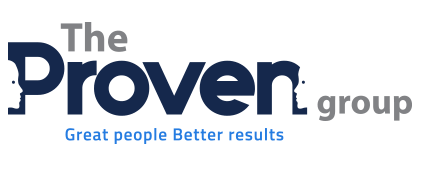You may be the perfect candidate for a job, but if you don’t perform well in the interview, you don’t get a second chance. Thorough preparation is the key to success.
While there are many aspects of an interview that are impossible to predict, there are certain standard questions that you can prepare answers for:
Standard questions to expect
• Can you tell me something about yourself?
• What are your strengths?
• What are your weaknesses?
• How would you like me to remember you after our interview?
• Do you have any questions?
In addition to rehearsing answers to these questions, dressing appropriately and understanding the following different interview formats are essential parts of your preparation:
Behavioural interview
This type of interview is based on the logic that past behaviour predicts future behaviour. Also known as competency-based interviewing, behavioural interviewing explores behavioural skills such as conflict resolution, and analysing and finding solutions to issues. For example, you could be asked to describe a time when you had to deal with a difficult customer or team member, what the outcome was and what you could have done differently.
How to prepare
Prepare using the SAO (Situation, Action, Outcome) approach. This involves describing a Situation, the Action you took and what the Outcome was.
Make sure you have at least five examples or stories to share. For example, you could prepare a story describing a situation in which you presented a new idea to your supervisor, the action you took and the outcome. Be prepared to also describe what you would do differently today.
Telephone interview
This type of interview is usually used to narrow down the initial pool of job candidates to a more manageable number that will then go on to be invited to a face-to-face interview. So it’s important to make a good impression at this stage. One of the things the prospective employer will be looking to determine is how well the candidate is able to speak English.
How to prepare
Being organised is the key, as it will help you feel prepared and therefore confident: Lay out all your information on the table, so that you are not shuffling paper while on the phone. Make sure that your phone is fully charged, and if the signal is not good in your area, offer a landline alternative. Speak clearly and concisely – and practise, practise, practise!
You should also not smoke, eat or drink during the interview. Ensure that young children are settled and there are no pets in the background.
Panel interview
Panel interviews are common in the public sector and tend to be more detailed than a one-on-one scenario. The size of the panel will probably range from two to five people, each with a different role. For example, the human resources manager will be looking to ensure that you fit with the company, culture and people, while the department manager will be assessing whether you have job-related skills and the experience and ability to undertake any task the position requires.
How to prepare
As for the behavioural interview, use the SAO approach and research, research and research!
Group interview
In this type of interview, all the candidates who are applying for the same position are interviewed together. Group interviews are usually conducted by a panel, which may comprise the human resources manager, the department manager and the supervisor. The group interview is effectively an initial screening of the candidates, giving the panel the opportunity to observe their behaviour, communication and interaction with others before deciding on who to invite for a more in-depth interview.
Group interviews may require role-play, including problem-solving workshops and work-related task activities.
How to prepare
You’ve applied for the same job, so expect competition! However, be nice, be respectful and SMILE. Prepare by researching the organisation and practising your answers to standard questions. Pay attention when spoken to, listen to others and be interactive in any role plays. Take notes if there is a presentation.
Practice makes perfect
Interviews are purposefully difficult and most people find them stressful. However, if you need more help to prepare, consider interview coaching. The practice with a professional will make you feel better prepared and more confident.
The Proven Group provides professional interview coaching as well as cover-letter and résumé-writing services in Melbourne, Ballarat and Geelong. In addition to these services, we offer LinkedIn profile-writing, how to address key selection criteria, personality profiling and career counselling. Contact us today to discuss our services.




